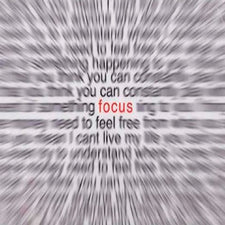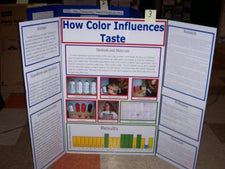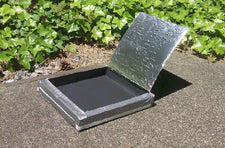- Science Fair Projects
- Grade
- Topic
- Supplies
- All Science Fair Projects
Music & Concentration
By Kayla • April 3, 2018

While listening to music as you complete an activity may not seem like multitasking, high school students Olivia Kyi and Verna Zhao wondered if having music on in the background could be a distraction, affecting both concentration and performance. To test this theory, they used a 100 piece puzzle, classical music, and some willing participants.
Perfect for upper middle school students interested in cognitive science, this project is great because it doesn't require many materials and can be done at school (perhaps in one of the study rooms in the library/media center) or at home. Here's the gist...
- Set out the 100 piece puzzle in a quiet room, inviting Test Group 1 (comprised of both male and female subjects) to work together to complete it. Record how long it takes the group to complete the puzzle.
- In the same room, invite Test Group 2 (comprised of both male and female subjects) to work together to complete the same puzzle. The difference - place a CD player in the corner and play classical music while they complete the puzzle. Time how long it takes the group to put the puzzle together.
To get conclusive results, you'll have to do this several times with different groups of volunteers.
[NOTE: Here's a similar project that we found over at Education.com - it tests the correlation between music and memory.]
About the Author

Kayla Johnson
Kayla is a creative homeschool mom and co-owner of SupplyMe. She's passionate about teaching her kids through hands-on learning and faith-based education. Whether she's crafting with her kids or planning lessons, she loves inspiring others to make learning meaningful and fun. Read more about Kayla →
👉 Check out a couple of my favorite articles:
Related Blog Posts
View More
Are All Sugars The Same?
Ever wonder if table sugar is the same as sugars found in honey, fruits, etc? For middle school ...
Read More
Keeping Drinks Hot
Whether you're a coffee, tea, or cocoa drinker, if you plan to enjoy a hot beverage, chances are ...
Read More
Recycled Water - Does It Effect Plant Growth?
For students interested in botany, ecology, and recycling, this science fair project that studies...
Read More
Exploring the Preservative Qualities of Various...
For middle school students interested in microbiology, this is sure to be a great science fair p...
Read More
All That Glows - Exploring Fluorescence
Photo Source: howstuffworks.com Black lights are not only neat, they can actually be quite usef...
Read More
Keeping Your Gadgets Going... with Solar Power!
Photo Source: adafruit.com In this age of technology, it seems as if everyone has a smart phone...
Read More
Harnessing the Sun's Rays for Cooking
Solar energy is a low-cost technology that can be used to heat homes, power lights, and even boi...
Read More
Does Music Help You Study?
With the ability to access your favorite music almost everywhere, have you ever wondered if takin...
Read More
What Makes Ice Melt Fastest?
Photo © 2008 Matt Seppings, Flickr The Department of Transportation (DOT) is always interested ...
Read More
Do You Know About the Germs You're Carrying?
While many students have explored school bathrooms, doors, and other surfaces for germ content, h...
Read More
Engineering + Physiology - Building an Articula...
Photo Source: www.instructables.com | rgraylint For students interested in engineering and phy...
Read More
Gender & The Stroop Effect
Photo Source: Eric H. Chudler, University of Washington Check out the picture above. As fast as...
Read More
Subliminal Messaging: Is It Effective?
Photo Source: buysubliminal.com There is a lot of controversy surrounding subliminal messaging ...
Read More
Grafting Plants with Bubble Gum!
Photo Source: www.fruitsinfo.com Grafting is a technique that botanists have used in the past t...
Read More
Dirty Mouth: Effect of Mouthwash on Bacteria
Photo © 2009 Flickr, Inha Leex Hale Mouthwash is commonly used to rid the mouth of bad odor and...
Read More
Artificial Sweeteners Versus Cane Sugar - Which...
Photo © 2008 Steven Depolo, Flickr To test whether ants prefer natural cane sugar versus artifi...
Read More
How Does Tee Height Affect Driving Distance?
Any golfers out there? For those students interested in physics and sports, this science fair pr...
Read More
Physical Activity & Academic Performance: I...
Photo © 2006 Alberto G., Flickr Not only is exercise important for keeping our bodies strong an...
Read More
Can Tide GAIN All the Prize?
Photo © 2009 Flickr, Pixel Drip High school student, Dao Quan Lin, wondered how effective liqui...
Read More
Turn Up The Heat: Comparing the Flammability of...
Ever wonder about the fire rating of housing materials? After a wildfire nearly devastated her ne...
Read More
Cell Phones & Driving
Photo © 2009 Lisa Padilla, Flickr Talking, texting, gaming, catching up with social media - the...
Read MoreRelated Categories
Disclaimer: The content on this page is for informational purposes only and reflects my personal experience and opinions. I’m not a financial advisor, and this is not financial advice. Please do your own research and consult with a qualified professional before making financial decisions. Some of the links on this page are affiliate or referral links, which means I may earn a commission or bonus if you use them. There’s no extra cost to you—and it’s a great way to support the site if you find the content helpful.














